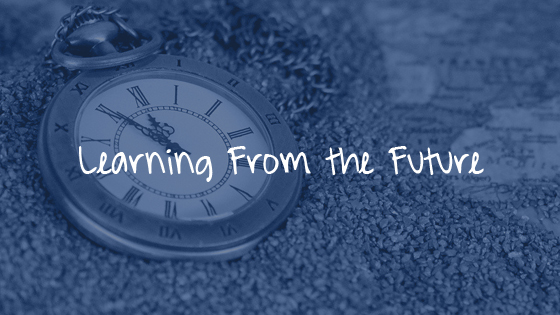|
Getting your Trinity Audio player ready...
|
I’m not sure how the idea of learning from the past got started. I think it is a good idea. Winston Churchill said in a speech to the House of Commons in 1948, “Those who fail to learn from history are condemned to repeat it.”
A helpful idea – learning from the past – but when history has been turned upside down, we have to learn from the future.
Because of what happened in 2020, 2021 will not be like 2019. Most of our plans, whether they are personal, career, business or church, are based upon the world of 2019. What happens if that world doesn’t exist anymore?
We have to start over and learn from the future. What does the future hold? How should we live in 2021?
The Apostle Peter writes: “With minds that are alert and fully sober, set your hope on the grace to be brought to when Jesus Christ is revealed at his coming.” (1 Peter 1:13)
Biblical hope is learning from the future. Christians can learn from the future because the Bible predicts the future.
Jeremiah writes: “I have plans for you,” declares the Lord, “Plans to prosper you and not to harm you, plans to give you hope and a future.” (Jeremiah 29:11)
It really doesn’t make a difference from an eternal perspective what 2021 will be like. We were surprised, perhaps stunned, by 2020, but God knew about 2020 from the beginning of time.
In a recent edition of Harvard Business Review (going academic on you now) an article is entitled “Learning from the Future.” A quote below:
So how best to proceed? Strategic foresight… Its aim is not to predict the future but rather to make it possible to imagine multiple futures…
Hmmmmm. The article does have good insight in planning for the future but there is a problem in that it talks about “multiple futures”.
So, do your best planning now for 2021 and then if 2021 is like 2020, with more shattering change, your best plans for 2021 are worthless. Same for 2022, 2023, 2024 – you get the point.
God knows the future. The Bible predicts that in the end times, events like 2020 will come with increased frequency and intensity.
Why do I love Biblical hope when it predicts turmoil?
Hope always has to do with the future. Those writing the recent issue of Harvard Business Review have hope – hoping they can put together various scenarios of possible futures and then develop resilient business approaches to succeed in any of those possible futures. Sounds exhausting!
I love Biblical hope not only because it’s about the future, but it reveals a future already known. And in that future, God has plans to bless you. This blessing isn’t one of a possible “multiple futures”. It is certain future.
Our hope is not of this world, but it is in this world. God will use us while here, but at the same time prepare us for His eternal purposes in our lives. Biblical hope is now and then.
We learn from the future because we know the future and so we live for that future now. Paul writes in Romans 5:5: “And this hope is not a disappointing fantasy.” (TPT)
Knowing my future allows me to plan for today. That plan tells me to not worry about tomorrow, for God has only one future planned.
And, it is good!

